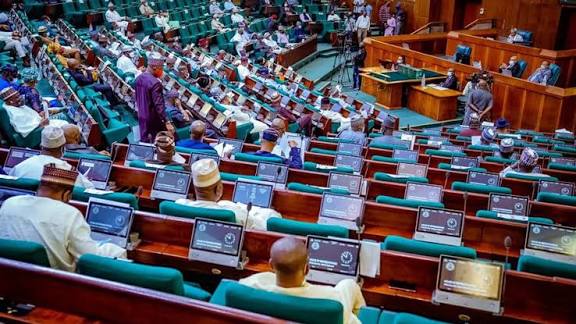The House of Representatives has resolved to investigate the $460 million Closed-Circuit Television (CCTV) project initiated by the Federal Government in 2010, following renewed concerns over the worsening security situation in the Federal Capital Territory (FCT) despite the existence of the surveillance infrastructure.
The resolution followed the adoption of a motion of urgent national importance moved by Rt. Hon. Amobi Godwin Ogah (LP–Abia), who expressed outrage that the massive financial investment had failed to deliver any meaningful improvement in public safety.
Ogah recalled that the CCTV project was conceived under former President Goodluck Jonathan’s administration to enhance security and aid crime prevention efforts in Abuja.
“The most important of all responsibilities of government is the protection of lives and property as well as the entrenchment of security to engender good governance,” Ogah stated.
He explained that the initiative was designed to install cameras across strategic areas of the FCT to monitor and prevent criminal activities, but has since failed to achieve its objectives.
Ogah further revealed that a Memorandum of Understanding (MoU) was signed in Beijing in 2010 between the Nigerian Government, represented by then Finance Minister Dr. Olusegun Aganga, and ZTE Communications of China, which was awarded the contract for the CCTV installation.
The lawmaker added that the project was financed through a $460 million loan from the China-EXIM Bank, drawn from a $600 million soft credit facility, to be repaid over 10 years after a 10-year grace period.
Despite this huge financial outlay, Ogah lamented that the system has not improved security in the capital city.
“Despite this massive investment and the financial burden Nigeria continues to bear in servicing the loan, the impact of the CCTV is not felt in any form,” he said.
“Rather than abating, crime rates have surged in Abuja, with daily reports of killings and other crimes occurring unchecked.”
He further described the situation as a lose-lose scenario for the country.
“It is troubling that Nigeria is still repaying a loan obtained from a Chinese bank for a non-functional CCTV project handled by a Chinese company,” Ogah said.
Following deliberations, the House resolved to set up an Ad-hoc Committee to investigate the implementation of the project, determine its current status, and establish reasons for its failure.
The committee is also expected to recommend measures to ensure accountability, transparency, and value for money in future government-funded security infrastructure projects.





